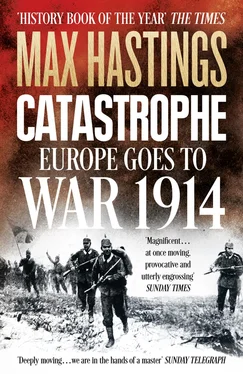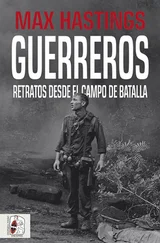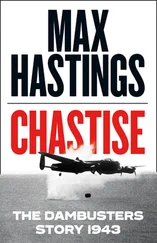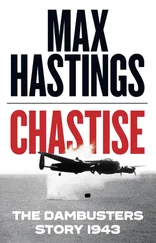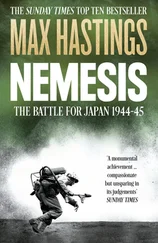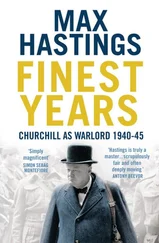Serbians played something of the same violent role on the margin of the Hapsburg Empire as did Irish factions in the affairs of Britain at several periods of the twentieth century, though the latter proved more resilient. Chronic Serb brutality towards their own minorities, especially Muslims, was a poor advertisement for the state. Some historians believe that its rulers were so intimately involved in terrorism, and explicitly in the conspiracy against Franz Ferdinand, that the country should be considered a rogue state. This view, once again, relies upon circumstantial evidence and speculation. Given the hostility between Apis and Pašić, it seems unlikely that they would have forged a common front to encompass the death of the Archduke.
Even without forewarning from Belgrade, the Austrian authorities had the strongest reasons to anticipate violent protest or some murderous attempt against Franz Ferdinand, who himself fully recognised the danger. Leaving his estate at Chlumetz on 23 June, he and his wife were obliged to begin their trip to Bosnia in a first-class compartment of the Vienna express, because the axles of his automobile were overheating. He said crossly: ‘Our journey starts with an extremely promising omen. Here our car burns, and down there they will throw bombs at us.’ The pre-1914 era was characterised by endemic acts of terrorism, especially in the Balkans, which were the butt of condescending British humour: a Punch joke had one anarchist asking another: ‘What time is it by your bomb?’ Saki penned a black-comic short story about an outrage – ‘The Easter Egg’. Both Joseph Conrad and Henry James wrote novels about terrorists.
For the Hapsburgs, such matters were commonplaces. Franz Joseph’s semi-estranged wife, the Empress Elisabeth, had been stabbed to death by an Italian anarchist while boarding a steamer at Geneva in 1898. Ten years later in Lemberg, a twenty-year-old Ukrainian student assassinated the governor of Galicia, Count Potocki, crying out, ‘This is your punishment for our sufferings.’ The judge at the trial of a Croat who shot at another Hapsburg grandee asked the terrorist, who had been born in Wisconsin, if he thought killing people was justified. The man replied: ‘In this case it is. It is the general opinion in America, and behind me are 500,000 American Croats. I am not the last among them … These actions against the lives of dignitaries are our only weapon.’ On 3 June 1908 Bogdan Žerajić, a young Bosnian, intended to shoot the Emperor in Mostar, but relented at the last moment. Instead he travelled to Sarajevo, fired several times at Gen. Marijan Varešanin, then – wrongly supposing that he had killed him – shot himself with his last bullet. It was later alleged, though never proven, that the Black Hand had provided the revolver. The Austrian police sawed off the terrorist’s head for preservation in their black museum.
In June 1912 a schoolboy shot at the governor of Croatia in Zagreb, missing his target but wounding a member of the imperial administration. In March 1914 the vicar-general of Transylvania was killed by a time-bomb sent through the post by Romanians. Yet Franz Ferdinand was capable of seeing the funny side of the threat: while watching military manoeuvres one day, his staff succumbed to panic when a dishevelled figure suddenly sprang from a bush clutching a large black object. The Archduke laughed heartily: ‘Oh, let him shoot me. That’s his job – he’s a court photographer. Let him make a living!’
There was nothing comic, however, about the obvious threat in Bosnia. The Austrian police had detected and frustrated several previous conspiracies. Gavrilo Princip was known to be associated with ‘anti-state activities’. Yet when he registered himself in Sarajevo as a new visitor, nothing was done to monitor his activities. Gen. Oskar Potiorek, governor of Bosnia, was responsible for security for the royal visit. The chief of his political department warned about the threat from the Young Bosnians, but Potiorek mocked the man ‘for having a fear of children’. Officials were later said to have devoted more energy to discussing dinner menus, and the correct temperature at which to serve the wines, than to the guest of honour’s safety. Official negligence alone gave Princip and his friends their chance.
On the evening of 27 June, though Franz Ferdinand and Sophie were not scheduled to enter Sarajevo until next day, on an impulse they drove into the town, an exotic half-oriental community of some 42,000 people, to visit craft shops, including a carpet stall, watched by a crowd that included Princip. The couple thoroughly enjoyed themselves. In the spa town of Ilidže later that evening Dr Josip Sunarić, a prominent member of the Bosnian parliament who had urged cancelling the visit, was presented to the Duchess. She reproached him, saying, ‘My dear Dr Sunarić, you are wrong after all. Things do not always turn out the way you say they will. Wherever we have been everyone, down to the last Serb, has greeted us with such great friendliness, politeness and true warmth, that we are very happy with our visit.’ Sunarić answered, ‘Your Highness, I pray to God that when I have the honour of meeting you again tomorrow night, you can repeat those words. A great burden will be lifted from me.’
That night a banquet was held for the Archduke at Ilidže’s Hotel Bosna: guests were served potage régence , soufflés délicieux , blanquette de truite à la gelée , chicken, lamb, beef, crème aux ananas en surprise , cheese, ice cream and bon-bons. They drank Madeira, Tokay and Bosnian Žilavka. Next morning before leaving for Sarajevo, Franz Ferdinand sent a telegram to his elder son Max, congratulating the boy on his exam results at Schotten Academy. He and Sophie adored their children: he was never happier than when sharing their toys in the playroom at Konopiště. This was the couple’s fourteenth wedding anniversary, and also a date pregnant with painful significance for Serbs – the anniversary of their 1389 defeat by the Ottomans at Kosovo.
The Archduke set forth in the dress uniform of a cavalry general – sky-blue tunic, gold collar with three silver stars, black trousers with a red stripe, surmounted by a helmet with green peacock feathers. Sophie, a buxom, stately figure, wore a white picture hat with a veil, a long white silk dress with red and white fabric roses tucked into a red sash, an ermine stole on her shoulders. Late on the morning of the 28th, in accordance with the published schedule, the archducal motorcade left Sarajevo station. Seven Young Bosnian killers had deployed themselves to cover each of three river bridges, one of which Franz Ferdinand was sure to cross.
The royal automobiles passed through what the Catholic archbishop later described as ‘a regular avenue of assassins’. Shortly before reaching its first scheduled stop, a bomb thrown by Nedeljko čabrinović, a printer, struck Franz Ferdinand’s car, but bounced off the folded hood before it exploded, wounding two of the archducal suite. čabrinović was seized and led away after making a half-hearted attempt to kill himself. He declared proudly, ‘I am a Serbian hero.’ Most of the other conspirators failed to use their weapons, later making assorted excuses for loss of nerve. The Archduke drove on to the town hall, where he displayed understandable exasperation when obliged to listen patiently to a pre-scripted speech of welcome. As the party re-entered their vehicles, he said he wished to visit the officers injured by čabrinović’s bomb. At the entry to Franz Joseph Street Gen. Potiorek, in the front seat of the archducal motor, expostulated: the driver was going the wrong way. The car stopped. It had no reverse gear, and thus had to be pushed backwards onto the Appel Quay, immediately alongside the spot where Princip stood.
Читать дальше
